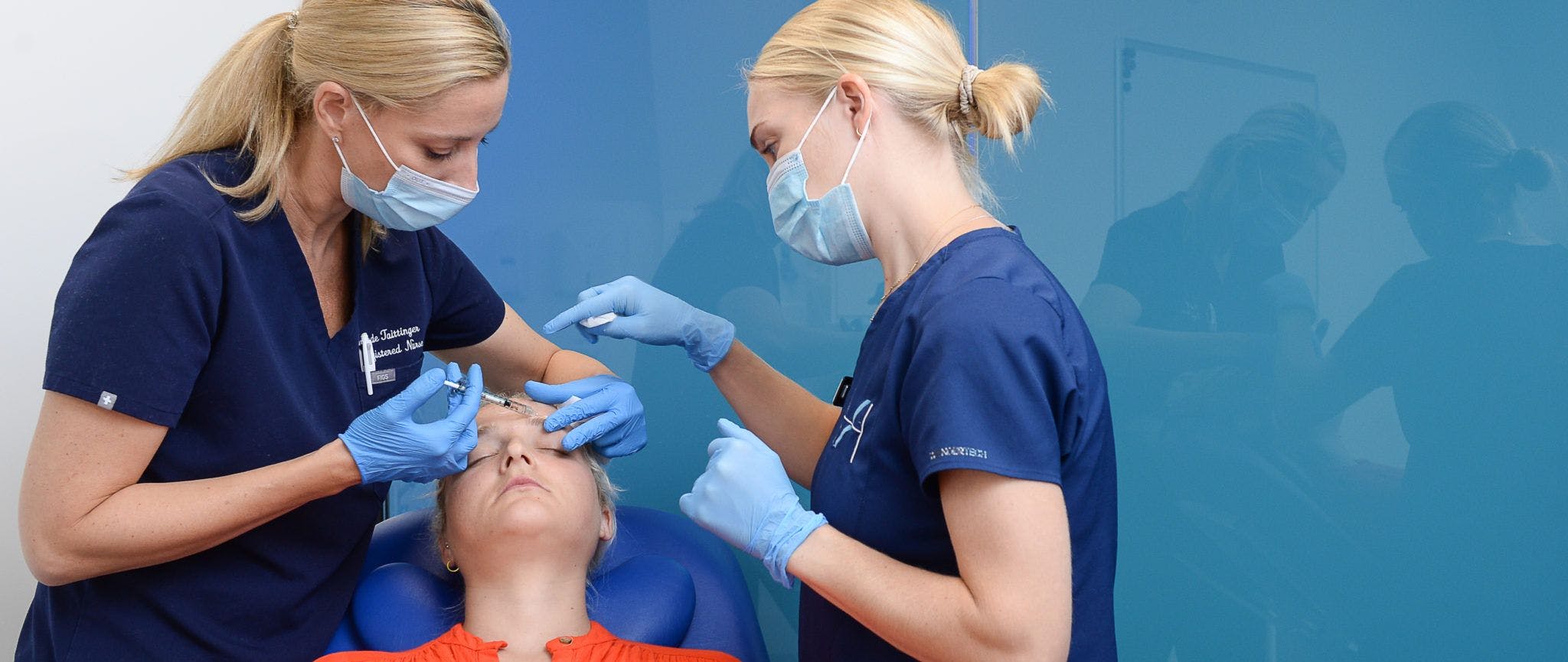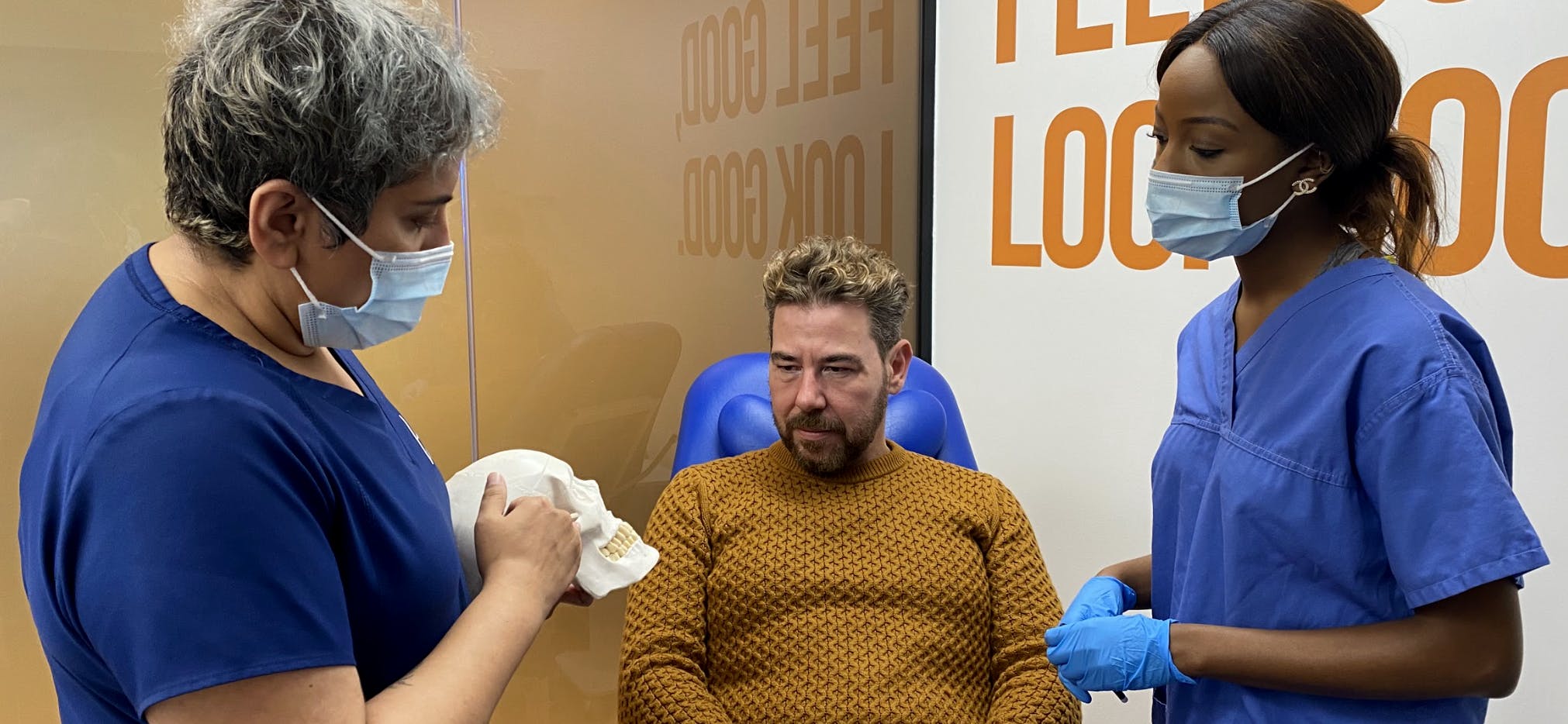UK Aesthetics Licensing details due by July 2023

The UK government has revealed the details of its aesthetics licensing plan and its delivery will be released “by July 2023”.
This information was contained within an official government response to the Department of Health and Social and Care Committee (HSCC) 2022 report on the impact of body image on mental and physical health.
These comments follow the announcement that they are committed to introducing aesthetics licensing scheme for practitioners and premises “as soon as possible”.

WHAT THE GOVERNMENT SAYS ABOUT ITS AESTHETICS LICENSING TIMELINE
In its response to the HSCC report, the government states that it’s “taking forward work to introduce a licensing scheme for non-surgical cosmetic procedures in England, but the scale of the work required to inform the regulations and establish the scheme means that we will not be able to meet the timeline recommended by the committee.”
It further notes that the Department for Health and Social Care (DHSC) “will agree the procedures in scope of the licensing scheme and will communicate a plan for delivery by July 2023.”
To clarify, this means they plan to release their plans for the aesthetics licensing scheme and its roll-out by July 2023. This does not mean that licenses will be required from then, however.
In August 2022, it was announced that a new licensing scheme should be ready to go by July 2023. However, due to the delay, this appears to be when they will be detailing their intentions and requirements, rather than setting the scheme into law.

MINIMUM STANDARD OF EDUCATION FOR AESTHETICS PRACTITIONERS
Recommendation 18 of the original 2022 HSCC report says:
“We are convinced that there is a need for a minimum standard to be met in regards to the education and training of practitioners who perform non-surgical cosmetic procedures. It is essential to ensure patient safety, and thus should be a central pillar of a future licensing regime. The Professional Standards Authority should be given the power to oversee a register of approved training providers. All training providers should have to meet an Ofqual-regulated standard.”
The official response to this is as follows:
“The government agrees that those who offer non-surgical cosmetic procedures to the public should be suitably trained and qualified.
“We recognise there is a need for nationally recognised standards covering the education, training and qualifications required for the administration of non-surgical cosmetic procedures.
“The Joint Council of Cosmetic Practitioners (JCCP) has already developed a competency framework covering high-risk non-surgical cosmetic procedures and there are a limited number of bodies currently able to offer training courses on non-surgical cosmetic procedures. This includes universities, colleges and private training companies.
“There are also a range of Ofqual-approved qualifications that are delivered by recognised Ofqual awarding bodies.
“We will work with JCCP and other relevant stakeholders to consider whether further education and training requirements are necessary.”
Whilst further clarity is required, this seems to suggest that an existing aesthetic medicine training qualification may meet the necessary standard for licensing.

ONUS FOR ENSURING SAFE PRACTICE PLACED LARGELY ON PATIENTS
Elsewhere in the response document, the government acknowledges that “Practitioners carrying out non-surgical cosmetic treatments are not currently required to undertake a mandatory risk assessment of patients before offering a procedure.”
Equally, “There are currently no specific premises standards for beauty salons and non-CQC-registered premises providing non-surgical cosmetic procedures.”
Whilst it notes that the “GMC has guidance for doctors offering cosmetic procedures”, the government has placed the onus for ensuring use of safe and competent injectors firmly on the patient.
The official response advises patients to “take the time to find a reputable, insured and qualified practitioner, as well as reflect on the possible impact of the procedure on both their physical and mental health.”
They also recommend patients ensure injectors are “operating from a premises that is compliant with hygiene standards and infection control measures.”
“Choosing a practitioner subject to statutory regulation or on a voluntary register accredited by the Professional Standards Authority provides assurance that they hold the requisite knowledge, qualifications and insurance to safely perform the procedures they are offering.”
Once an aesthetics licensing scheme is in place, this should go some way towards assisting patients with this.

"NO CURRENT PLANS" TO MAKE DERMAL FILLERS PRESCRIPTION-ONLY
Another piece of information revealed in the report relates to the regulation of non-surgical aesthetic procedures. Specifically, it pertains to the question of whether dermal fillers will be made prescription-only medications, as has been previously recommended.
On this subject, the government says: “Currently, a dermal filler may be regulated either as a general product, a medicine or a medical device, depending on its composition and intended use. Fillers classified as general products are not subject to licensing or manufacturing controls, and do not need a prescription to be obtained.
“The Medicines and Healthcare products Regulatory Agency (MHRA) is responsible for the regulation of medical devices, and intends to bring in more stringent rules for certain aesthetic and non-medical products, including dermal fillers, under the UK medical devices regulations.
“There are no current plans for MHRA to make dermal fillers prescription only. Unlike Botox, dermal fillers cannot be covered by the existing prescription-only medicine framework because they are medical devices rather than medicinal products.”
As champions of patient safety through high-quality aesthetics education and hands-on injectables training for healthcare professionals, we are following these developments closely.
We will bring you further regulation information and updates as they become available.
All information correct at the time of publication.
Download our full prospectus
Browse all our injectables, dermal fillers and cosmetic dermatology courses in one document
By submitting this form, you agree to receive marketing about our products, events, promotions and exclusive content. Consent is not a condition of purchase, and no purchase is necessary. Message frequency varies. View our Privacy Policy and Terms & Conditions
Attend our FREE open evening
If you're not sure which course is right for you, let us help
Join us online or in-person at our free open evening to learn more
Our Partners














STAY INFORMED
Sign up to receive industry news, careers advice, special offers and information on Harley Academy courses and services

